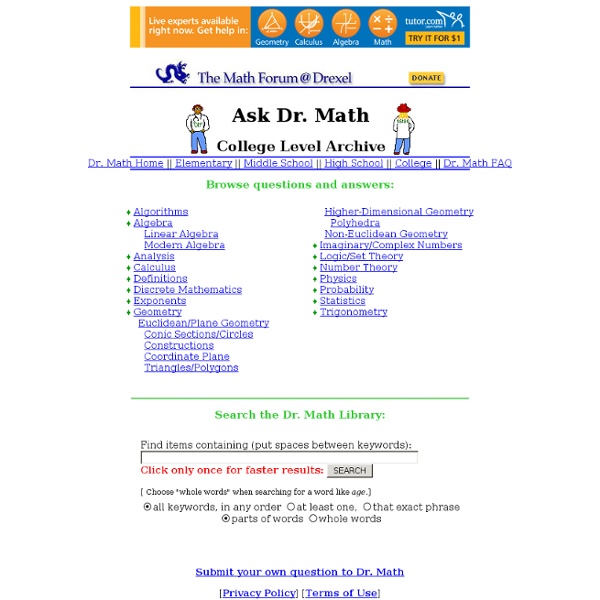



http://mathforum.org/library/drmath/drmath.college.html
a metablog about American foreign policy Ed note. This is a guest post by Toby Lanzer, the Deputy Special Representative of the Secretary General for South Sudan (Juba, South Sudan) — As the conflict in South Sudan reached its 100th day, images of death, destruction and displacement in the world’s newest nation continued to dominate the image of the country. The fighting between government and opposition forces has driven a million people from their homes, including about 70,000 who are sheltering in UN peacekeeping bases. SCHOPENHAUERS 38 STRATAGEMS, OR 38 WAYS TO WIN AN ARGUMENT Arthur Schopenhauer (1788-1860), was a brilliant German philosopher. These 38 Stratagems are excerpts from "The Art of Controversy", first translated into English and published in 1896. Carry your opponent's proposition beyond its natural limits; exaggerate it.
9/11 North Tower Exploding by David Chandler Home | About Us | Contact | Subscribe North Tower Exploding by David Chandler Entire Sections of Building Hurled at 70 MPH 8 Things Everybody Ought to Know About Concentrating “Music helps me concentrate,” Mike said to me glancing briefly over his shoulder. Mike was in his room writing a paper for his U.S. History class. Futurism Hans Rosling: The Joy of Stats Home | About Us | Contact | Subscribe Hans Rosling: The Joy of Stats BBC Four 200 Countries, 200 Years, 4 Minutes Uploaded by BBC November 26, 2010
The Mystery Woman Behind the Murdoch Mess Rebekah Wade was 20 years old in 1988 when she showed up at the Warrington office of The Post, a now defunct national tabloid. As Graham Ball, then the features editor, recalled to the BBC, she approached him and said, “I am going to come and work with you on the features desk as the features secretary or administrator.” He told her that would be impossible, as he was moving the next week to work in the paper’s London office. Alan Jones « you said it… Megan Levy Breaking news reporter Broadcaster Alan Jones is facing an online backlash after suggesting on national television that “left-wing radical students” were behind the Boston Marathon bombings and that Australia should reconsider its intake of foreign university students in response.
Mike Carlton on the Alan Jones bio/ABC : Mess+Noise From the Crikey newsletter: In an edited extract from his on-air editorial this morning, 2UE broadcaster Mike Carlton writes: Time to ask some searching questions, I think. Alan Jones, 2GB and shares The public might wonder why Alan Jones can get away with increasingly outrageous comments — but with this many share options, and that many listeners, it’s hard to get the Parrot to stop screeching. Politicians are railing against him, social media is in meltdown and advertisers are pulling their spending. Yet, despite his insensitive comments about Julia Gillard’s father to the Sydney University Liberal Club, Alan Jones’ status as the king of talkback seems as assured as ever. As Crikey hit deadline this morning, over 17,000 people had signed a change.org petition calling for 2GB to terminate Jones’ contract immediately.
Media Circus: Fauxpology Edition Browse:Home/Media Circus: Fauxpology Edition By tigtog on October 1, 2012 I’m sure there’s a transcript somewhere of the most disgraceful fauxpology ever offered up by an oxygen thief, but I’m not linking to it in this post. Reading commentary on Twitter yesterday was enough. Alan Jones and the Oedipussy Complex Alan Jones' hatred for women would seem to be pathological and Oedipal in origin, writes contributing editor-at-large Tess Lawrence. IT MUST repulse Alan Jones to think he exited his mother's body via her cunt, the female coital organ and entry point by which he was both conceived and expunged. Clearly, any quarrel with her remains unforgiven.